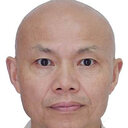Association between Obesity, Serum Lipids, and Colorectal Polyps in Old Chinese People.
Keywords
Abstract
Background. Colorectal cancer mostly arises from the polyps of colon. The aim of our study was to examine the association of body mass index (BMI) and serum lipids with the colorectal polyps in old Chinese people. Methods. The risk of developing colorectal polyps was studied in 244 subjects (212 men and 32 women, 74.63 ± 11.63 years old) who underwent colonoscopy for the first time from January 2008 to July 2012 at the Navy General Hospital, Beijing, China. According to the results of colonoscopy, all the subjects were divided into 112 normal control, 38 right colorectal polyps, 53 left colorectal polyps, and 41 both right and left colorectal polyps groups. The total plasma cholesterol, plasma triglyceride, plasma creatinine concentration, blood urinary nitrogen, and fasting glucose were determined using a multichannel analyzer. Results. There were significant differences among normal control, right colorectal polyps, left colorectal polyps, and both right and left polyps groups, which were the BMI, total cholesterol, triglycerides, creatinine, and urinary nitrogen. In binary logistic regression analysis, there were two risk factors associated with the occurrence of colorectal polyps, which included BMI and systolic blood pressure. Conclusions. Colorectal polyps were significantly associated with increased BMI, total cholesterol, and triglycerides levels.



